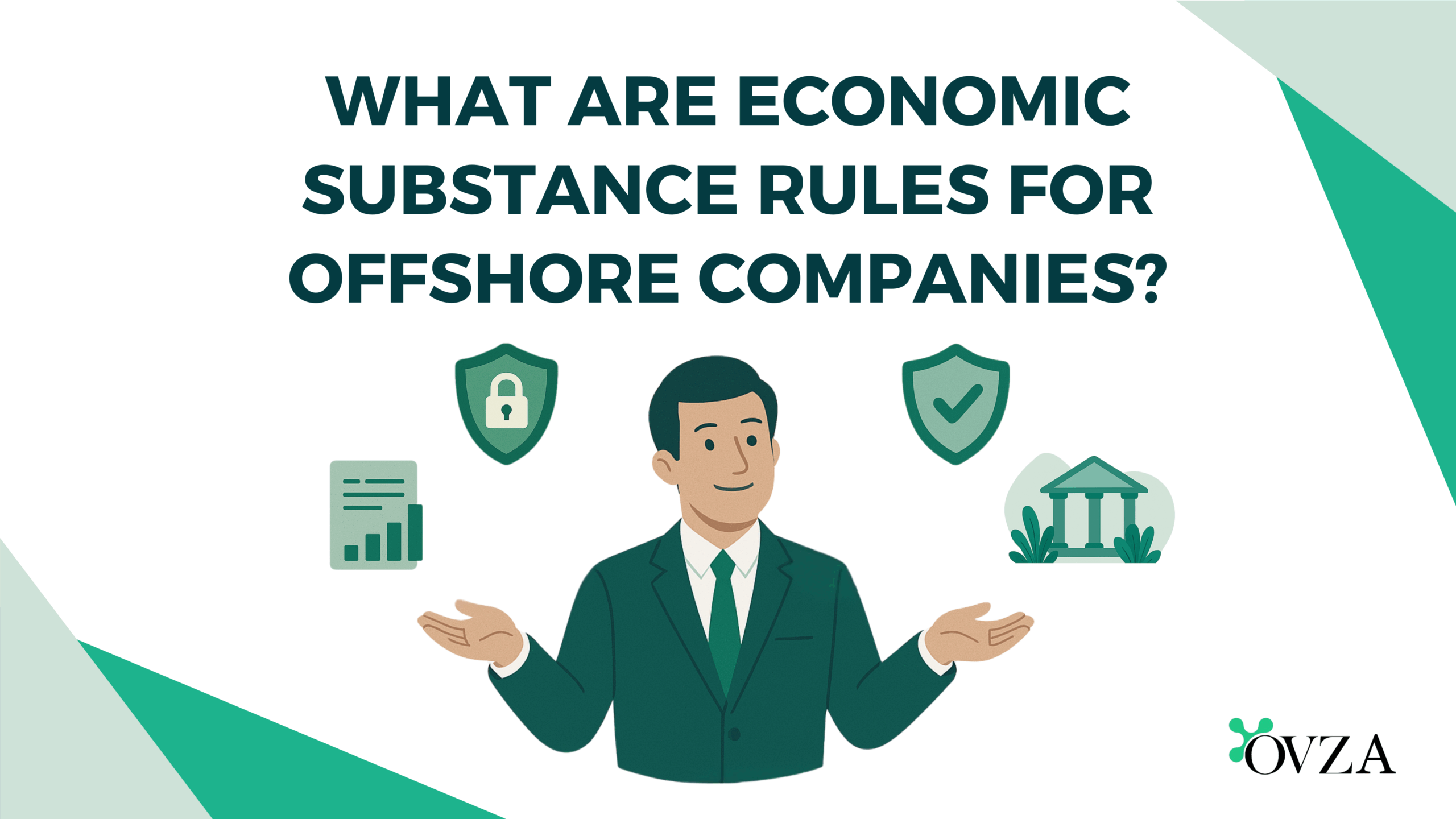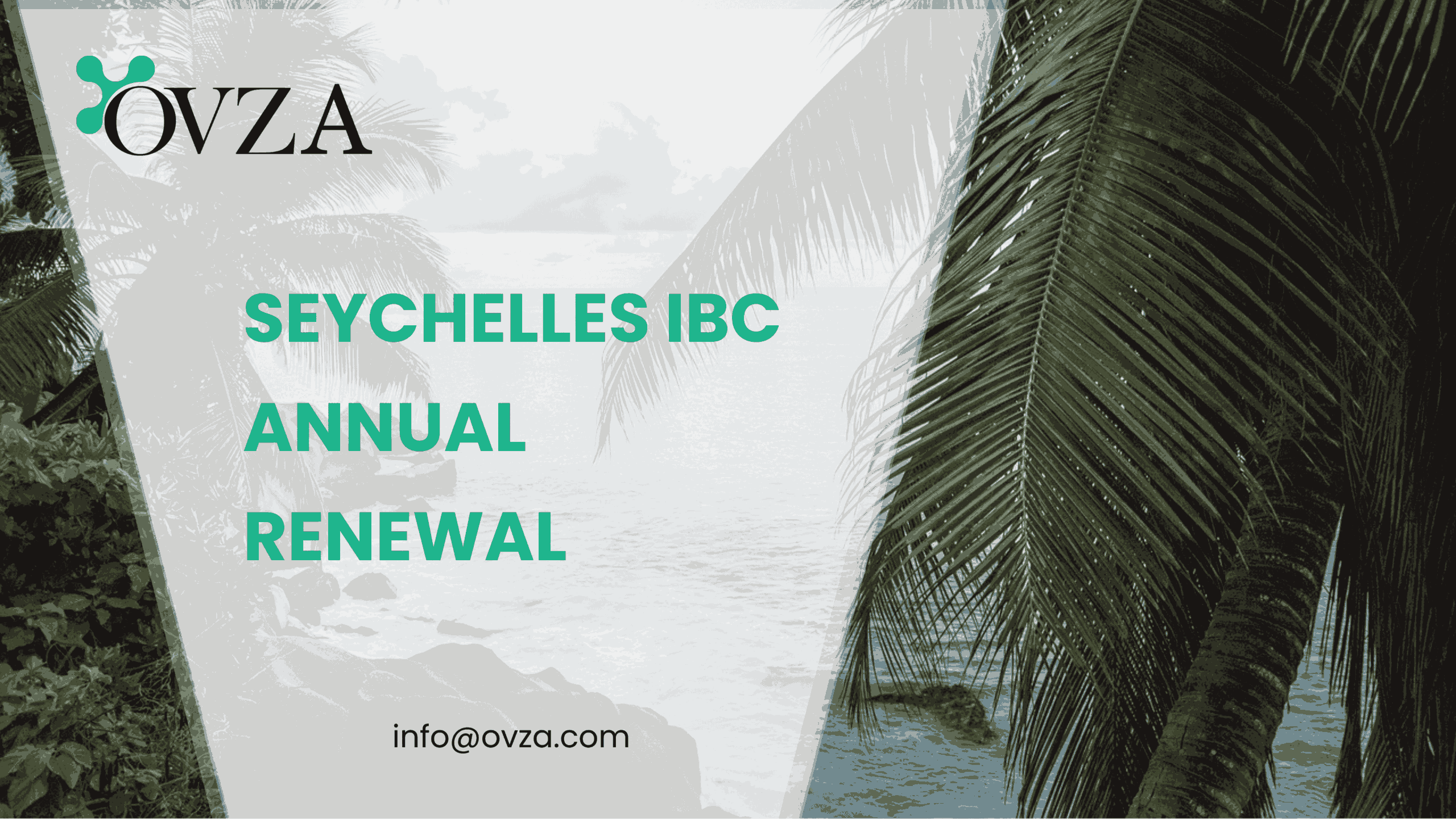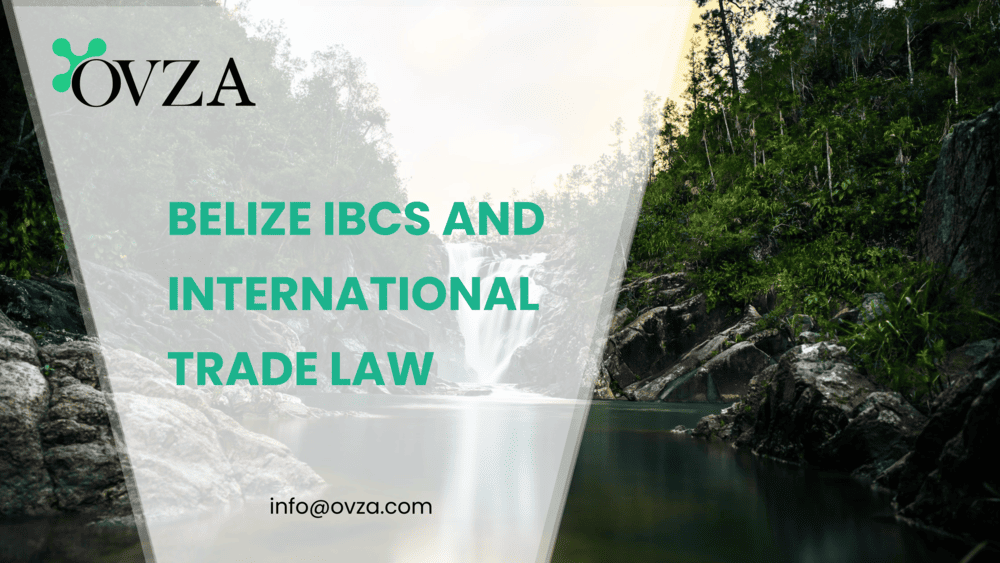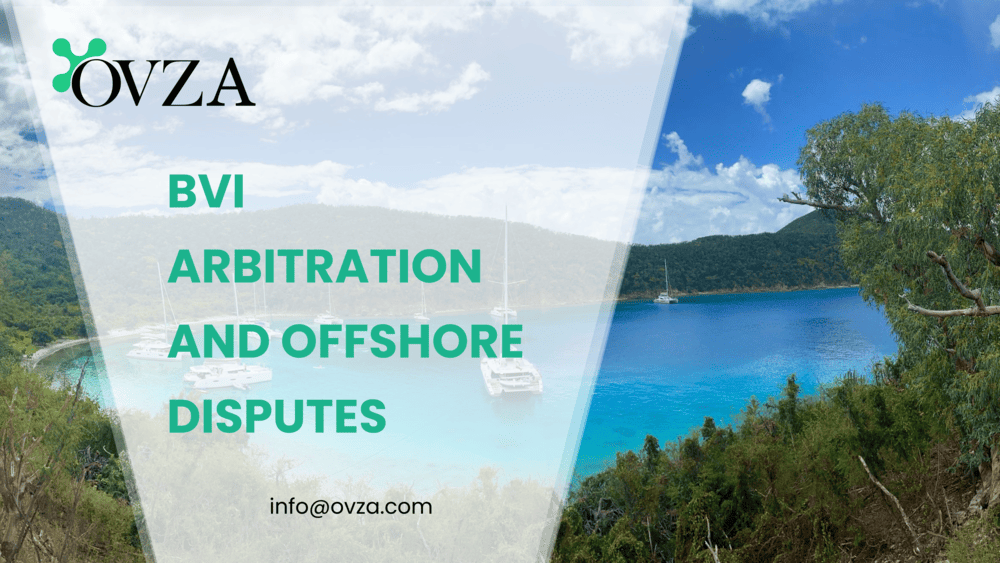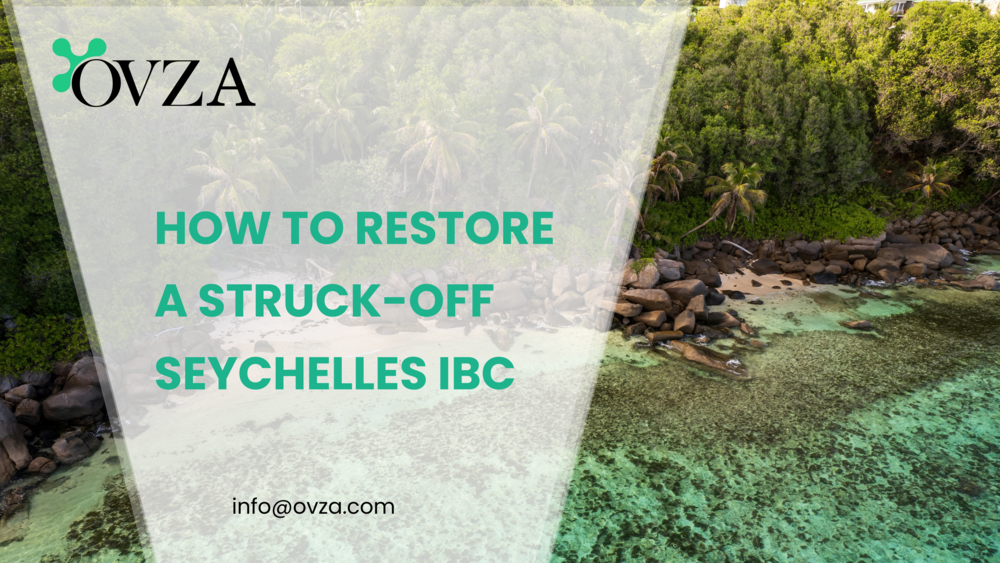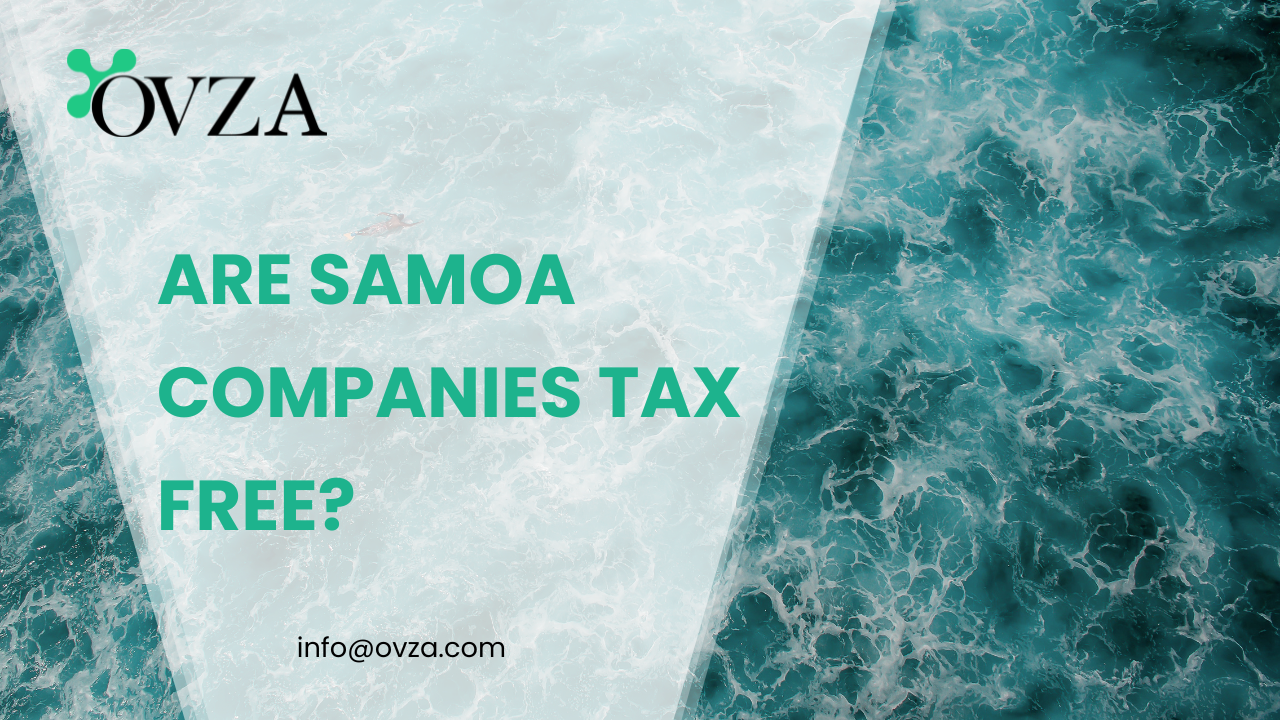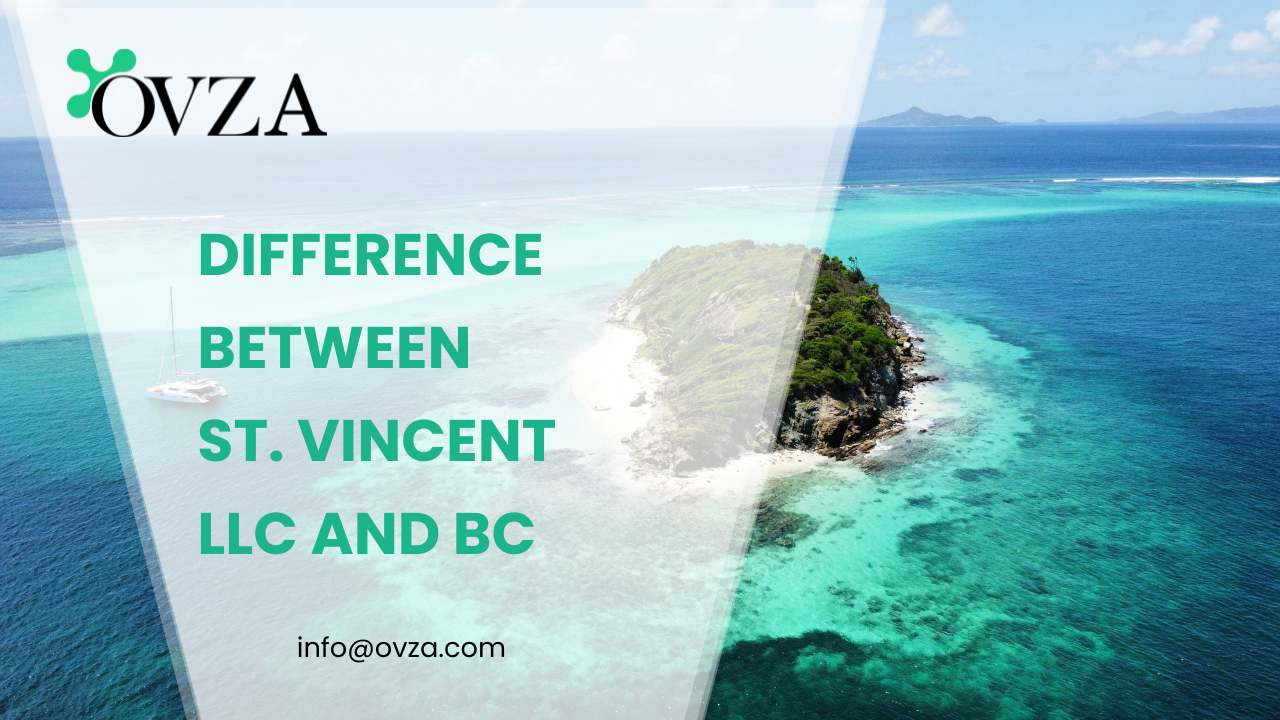Economic substance rules require some offshore companies to show real business activity in the country where they’re incorporated. These laws were introduced in response to international pressure to eliminate so-called “stateless profits” and prevent the use of companies that exist only on paper to shift income into tax-neutral jurisdictions.
At the core, these requirements ensure that a company claiming tax residency—or legal incorporation—in an offshore jurisdiction has actual economic activity in that jurisdiction. This could include having employees, incurring operating expenses locally, maintaining an office, or conducting core income-generating activities (CIGAs) within the territory. The goal is to prevent entities from benefiting from a low- or no-tax regime unless they are truly operating within that jurisdiction’s legal and economic framework.
Understanding what economic substance rules / requirements are for offshore companies begins with a look at the global legislative background, the jurisdictions enforcing such rules, and the penalties for non-compliance. It’s no longer enough to simply form a company and claim tax neutrality—substance now plays a key role in legal validity and reputational defense.
- The Global Push Behind Substance Rules
- How Economic Substance Is Evaluated in Law
- Who Is Actually Affected by Substance Laws?
- Economic Substance in Practice: Compliance, Not Burden
- What Offshore Countries Now Have Economic Substance Requirements?
- Strategic Structuring and Legal Compliance
- Conclusion
The Global Push Behind Substance Rules
Economic substance legislation gained momentum following the work of the OECD’s Base Erosion and Profit Shifting (BEPS) initiative and the EU’s Code of Conduct Group. These international bodies have identified offshore companies—especially those with mobile income and minimal presence—as tools for shifting profits artificially to avoid taxation.
As a result, jurisdictions traditionally considered “offshore tax havens” have come under immense pressure to demonstrate that their corporate frameworks are not enabling harmful tax practices. In response, countries like the British Virgin Islands, Cayman Islands, Bermuda, Seychelles, and others have enacted Economic Substance Acts, aligning their corporate regimes with international standards.
These laws typically apply to companies that earn income in certain specified sectors, including finance, shipping, intellectual property, fund management, insurance, and headquarters businesses. If a company engages in one of these activities, it must meet defined criteria to prove that the business is actually being conducted within the jurisdiction.
The core legal standard behind what economic substance requirements are for offshore companies is not based on revenue alone—it is based on the nexus between income and local activity. A company that earns money but has no local employees, infrastructure, or operational presence may now be considered non-compliant and subject to fines, deregistration, or tax reclassification elsewhere.
How Economic Substance Is Evaluated in Law
Understanding what are economic substance requirements for offshore companies means looking at how regulators evaluate substance in practice. Most compliant offshore jurisdictions have adopted a three-part legal test:
First, the company must be directed and managed within the jurisdiction. This includes holding board meetings locally, maintaining records and minutes within the country, and demonstrating that decision-making occurs in the place of incorporation—not simply being rubber-stamped from abroad.
Second, the company must conduct core income-generating activities (CIGAs) in that jurisdiction. These activities are defined by statute and vary depending on the business sector. For example, a fund management company must show that portfolio decisions and investment oversight are taking place locally.
Third, the company must demonstrate adequate physical presence—this can include local employees, office facilities, and proportional operating expenses. There is no universal formula for what qualifies as “adequate,” but it must reflect the scale and type of income-generating operations involved.
Who Is Actually Affected by Substance Laws?
While the framework seems broad, in practice, economic substance requirements do not affect most offshore companies. These rules target specific, often regulated sectors that are viewed as high-risk from a tax avoidance standpoint. This includes:
- Banking and finance companies
- Insurance businesses
- Fund management firms
- Shipping operators
- Holding companies (under certain conditions)
- Intellectual property (IP) holding companies
- Service centers or headquarter businesses
These are industries that would, in many jurisdictions, require regulatory licenses anyway. The purpose of substance rules is to ensure that if a company claims profits in a zero-tax environment, it must also demonstrate that some form of meaningful activity is taking place there.
For example, a freelance consultant, e-commerce merchant, or investor using an offshore company to manage international revenue or hold assets would not typically trigger substance obligations—unless they’re engaging in one of the specifically defined relevant activities.
Thus, when asking what are economic substance requirements for offshore companies, it’s critical to separate the legal standard from the practical impact. The majority of offshore IBCs and LLCs used by small business owners or digital entrepreneurs fall outside the scope of these laws.
Economic Substance in Practice: Compliance, Not Burden
Meeting substance obligations is more procedural than operational for companies that fall within the rules. Offshore jurisdictions have implemented annual reporting regimes where qualifying entities must submit economic substance declarations. These include information on activities, employees, local expenses, and whether directors reside or meet within the jurisdiction.
In most cases, compliance can be managed by partnering with licensed local service providers. These firms offer solutions such as serviced office leases, part-time compliance staff, and administrative support, allowing companies to meet substance thresholds without maintaining a full operational base.
Regulators are not looking to penalize foreign investors—they are ensuring that jurisdictions maintain international credibility. As long as the company is honest about its activity and documents its operations accurately, meeting the substance standard is achievable.
What Offshore Countries Now Have Economic Substance Requirements?
As a result of pressure from the OECD and EU, nearly all major offshore financial centers have enacted economic substance laws. These jurisdictions were previously identified as “high-risk” or “non-cooperative” due to the availability of zero-tax corporate regimes without local presence requirements. To avoid blacklisting and loss of credibility in the global financial system, they introduced substance regimes between 2019 and 2021.
Here’s a jurisdiction-by-jurisdiction overview of economic substance laws:
| Offshore Jurisdiction | Economic Substance Law? |
|---|---|
| British Virgin Islands (BVI) | Yes |
| Cayman Islands | Yes |
| Bermuda | Yes |
| Seychelles | Yes |
| Belize | Yes |
| Bahamas | Yes |
| Jersey | Yes |
| Guernsey | Yes |
| Isle of Man | Yes |
| Mauritius | Yes |
| Panama | No (but evolving) |
| Hong Kong | No (standard tax system) |
| Singapore | No (substance built into tax) |
| Marshall Islands | Yes |
| St. Vincent & the Grenadines | No (for now) |
| Anguilla | Yes |
| UAE (RAK, ADGM, etc.) | Yes |
Strategic Structuring and Legal Compliance
For companies that are subject to these rules, structuring legally and efficiently is key. This may involve hiring local directors, using a registered office provider with economic substance services, or outsourcing certain administrative functions within the jurisdiction. These arrangements not only ensure compliance but also preserve the benefits of offshore structuring, such as tax neutrality, asset protection, and global reach.
The consequences of non-compliance vary by jurisdiction but may include financial penalties, public disclosure, revocation of tax-exempt status, or automatic information sharing with foreign tax authorities. In some countries, continued failure to comply can lead to company strike-off or criminal sanctions for directors.
Conclusion
So, what are economic substance requirements for offshore companies in 2025? They are legal obligations imposed by most offshore jurisdictions to ensure that companies that are in restricted industries can access the benefits of a low- or no-tax environment only if they meet its requirements.
While they sound burdensome, the reality is far more measured. Most offshore companies are unaffected unless operating in highly regulated or mobile income sectors. And for those that are affected, compliance is manageable with professional support.
If your offshore company is in one of the jurisdictions listed above and you’re unsure of your obligations, it’s essential to contact our legal affairs department before filing deadlines pass or enforcement actions begin. Compliance isn’t just about ticking a box—it’s about preserving the long-term legal integrity of your offshore strategy.
Disclaimer: The information provided on this website is intended for general reference and educational purposes only. While OVZA makes every effort to ensure accuracy and timeliness, the content should not be considered legal, financial, or tax advice.


